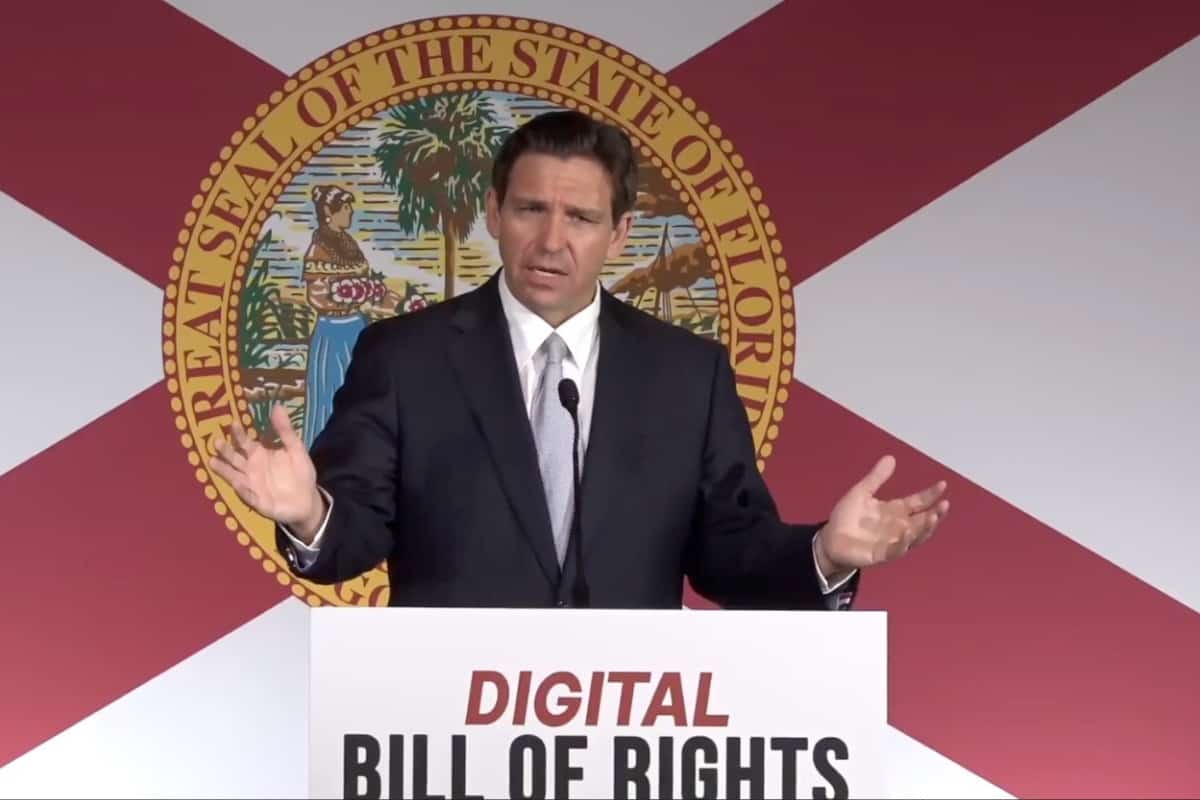U.S. Supreme Court to consider Florida’s landmark ‘Big Tech’ censorship law

WASHINGTON, D.C. – The U.S. Supreme Court Monday is hearing oral arguments for and against Florida and Gov. Ron DeSantis’ restrictions on massive social media, or “Big Tech” corporations aimed at protecting individuals’ speech.
Florida Attorney General Ashley Moody is representing the state in a case against NetChoice, a tech group that also sued Texas for Big Tech restrictions.
In 2021, DeSantis signed a new law implementing the following:
- Giving Floridians the right to sue “Big Tech platforms” for monetary damages if users are not given proper notice of policy changes, and allowing them more rights to obtain their information if they are “deplatformed”
- Allows the Florida attorney general to bring legal action for companies that violate new restrictions, such as standards on shadow banning, deplatforming, censorship and transparency requirements
- Bars the platforms from deplatforming political candidates in Florida, and imposes $250,000 fines per day if a statewide candidate is deplatformed, and $25,000 per day for non-statewide offices
“Florida passed protections three years ago, for individuals who’ve been deep platformed or censored based on the content or viewpoint of their political speech,” DeSantis said Monday. “Texas passed a similar law. This has been making its way through the courts, we knew it was going to end up at the floor at the U.S. Supreme Court.”
“These tech companies, on the one hand, are private – and normally a private company can house whatever speech or viewpoints it wants. In this case, these companies get liability protection from the federal government, because they say that they’re not publishers, they’re not making editorial judgments about what speech is good and what speech is bad,” the governor said. “They’re just a platform.”
DeSantis is referencing Section 230 of the Communications Decency Act of 1996.
Moody said on Monday that social media is “the new town square.”
“We are fighting in the U.S. Supreme Court for Floridians to debate ideas, engage in political discourse and question government policies on social media platforms,” she said. “This fight is vital to our democratic process and necessary to the prosperity of a free society, and government of the people, by the people, for the people.”
“The principle is going to be – does big tech have a right to just simply censor, regardless of any protections for the consumer?” DeSantis said.
The governor mentioned Google’s Gemini AI, which recently sparked controversy for refusing to depict images of white people regarding historical events.
“You look at things like things like this Google AI Gemini, what a disaster that is. That’s the way of thinking that the people that operate these companies are going to have that is not going to be good for robust political discourse in this country,” he said. “What they’re doing is creating, just, totally fictitious, very ideological narratives.”
“We want more speech, not less speech,” DeSantis said.
Florida’s law was struck down in court, an expected battle that has climbed all the way to the Supreme Court.
However, Texas’ law ended up being upheld, signaling conflicting legal opinions across the country’s court system and a likely determining factor in the highest court of the land looking to issue a final ruling.
Texas’ restrictions on Big Tech, similar to Florida, looked to prevent the platforms from censoring users’ “constitutionally protected speech.”
The U.S. Supreme Court typically releases its decisions by the summer.
Florida’s 2021 law was sponsored in the Florida Senate by the Governmental Oversight and Accountability Committee alongside then-Republican Sen. Ray Rodrigues, and in the House by then-Rep. Blaise Ingoglia, R-Spring Hill.
The governor also signed his touted “Digital Bill of Rights” into law in 2023, which aims to give Floridians more control over the personal data companies use.
The legislation was carried by Sen. Jennifer Bradley, R-Fleming Island, and Rep. Fiona McFarland, R-Sarasota.



